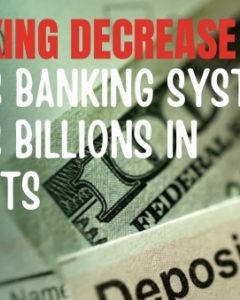Sweden's Bankruptcy Rates Skyrocket by 14%, Raising Concerns for Labor Market
Concerns for the labor market in Sweden as bankruptcy rates skyrocket by 14%. Recent data from UC highlights the downturn in sectors such as construction, hospitality, and restaurants.
The bankruptcy rates in Sweden have experienced a steep rise, reaching a staggering 14% increase compared to the same period last year. Recent data from UC, a leading credit reference firm in the country, indicates that this alarming surge is primarily attributed to a downturn across various sectors, including construction, hospitality, and restaurants.
Gabriella Goransson, the CEO of UC, expressed her deep concerns regarding the persistently high bankruptcy levels. Although these figures have started to stabilize, they still pose significant risks to the labor market and may potentially lead to an upsurge in the unemployment rates. To illustrate the severity of the situation, the construction sector alone witnessed approximately 3,000 employees lose their jobs due to companies going bankrupt.
Creditsafe, another reputable credit agency in Sweden, provided further evidence of these distressing trends. It highlighted a consistent increase in bankruptcy cases for the 14th consecutive month. Sectors such as sports halls, retail, real estate, construction, hospitality, and restaurants were hit the hardest. These sectors are not only vital contributors to the country's economy but also crucial for employment rates.
While the high bankruptcy levels may have shown signs of stabilization, according to UC's CEO, the situation is still far from reassuring. Gabriella Goransson cautioned that there is a growing concern about a "frightening development" in which the bankruptcy rates stabilize at elevated levels. This scenario poses significant risks for the labor market and may ultimately lead to a surge in unemployment, exacerbating the strain on Sweden's social security systems and potentially giving rise to social issues.
The impact of bankruptcies goes beyond the immediate loss of jobs for construction sector employees. It has the potential to create a ripple effect, affecting related sectors and the overall economy. The substantial number of bankruptcy cases could undoubtedly contribute to increased unemployment in Sweden. Consequently, there is a pressing need for effective financial and economic strategies to address this issue.
Policymakers, financial institutions, and businesses must collaborate in navigating these challenging economic conditions. By doing so, they can ensure the survival and growth of businesses, which is instrumental in safeguarding jobs and the overall economy.
In conclusion, Sweden is currently facing a disconcerting surge in bankruptcy rates across various sectors. Although there are indications of stabilization, the inherent risks to the labor market and the potential rise in unemployment rates cannot be ignored. Urgent action is necessary to enact robust financial and economic measures that will mitigate this issue. Through close collaboration, Sweden can protect jobs, businesses, and ultimately the economy.
Sweden\'s Bankruptcy Rates Skyrocket by 14%, Raising Concerns for Labor Market
Breaking: Ten Arrested in Singapore for Multi-Billion Dollar Money Laundering Case
In a significant development, ten individuals have been arrested in Singapore for their involvement in a multi-billion dollar money laundering case. Stay updated with the latest news and investigations on this high-profile case.
In a significant development, ten individuals have been arrested in Singapore for their involvement in a multi-billion dollar money laundering case. Stay updated with the latest news and investigations on this high-profile case.
Read moreEuropean Shares Surge as Eurozone Inflation Drops: Will ECB Halt Interest Rate Hikes?
European shares surge as eurozone inflation drops, raising hopes of ECB halting interest rate hikes. Despite a poor performance, softer inflation data leads to gains in real estate and technology shares.
European shares surge as eurozone inflation drops, raising hopes of ECB halting interest rate hikes. Despite a poor performance, softer inflation data leads to gains in real estate and technology shares.
Read moreUK Regulators Shake Up Financial Sector with Stricter Diversity Standards
The Financial Conduct Authority (FCA) and the Prudential Regulation Authority (PRA) in the UK are proposing stricter diversity standards to address workplace bullying and sexual harassment in the financial sector. Learn more about the measures aimed at creating a safer and inclusive environment within organizations.
The Financial Conduct Authority (FCA) and the Prudential Regulation Authority (PRA) in the UK are proposing stricter diversity standards to address workplace bullying and sexual harassment in the financial sector. Learn more about the measures aimed at creating a safer and inclusive environment within organizations.
Read moreUSD Resurgence: Dominating Global Financial Landscape
Explore the remarkable resurgence of the USD in the global financial landscape, its impact on other currencies, and implications for businesses and individuals in international trade and investment.
Explore the remarkable resurgence of the USD in the global financial landscape, its impact on other currencies, and implications for businesses and individuals in international trade and investment.
Read moreChina's Economic Challenges: Preventing a Vicious Cycle with the Yuan
Explore the economic challenges faced by China, including the sacrifice of the Yuan to prevent a vicious cycle of low demand and declining output. Learn why experts believe immediate action is crucial.
Explore the economic challenges faced by China, including the sacrifice of the Yuan to prevent a vicious cycle of low demand and declining output. Learn why experts believe immediate action is crucial.
Read moreUSD Near Longest Bull Streak in 9 Years as Optimistic Economic Data Supports
Discover why the USD is on the verge of its longest rising streak since 2014, driven by encouraging US economic data. Although this trend raises doubts about future interest rate hikes by the US Federal Reserve, the Yuan is facing pressures with falling values domestically and internationally due to increasing capital flow concerns and a widening bond yield gap with developed economies. Stay informed on these developments impacting global currency markets.
Discover why the USD is on the verge of its longest rising streak since 2014, driven by encouraging US economic data. Although this trend raises doubts about future interest rate hikes by the US Federal Reserve, the Yuan is facing pressures with falling values domestically and internationally due to increasing capital flow concerns and a widening bond yield gap with developed economies. Stay informed on these developments impacting global currency markets.
Read moreWeakness of Yen Reflects Interest Rate Difference, Poses Valuation Challenges
Explore the factors behind the weakness of the yen and its impact on global economies. The valuation challenges arise from the interest rate difference between Japan and other markets. Gain insights into the concerns of investors and policymakers surrounding this devaluation trend.
Explore the factors behind the weakness of the yen and its impact on global economies. The valuation challenges arise from the interest rate difference between Japan and other markets. Gain insights into the concerns of investors and policymakers surrounding this devaluation trend.
Read moreChina's PBoC Takes Action as Yuan Reaches 16-Year Low
As the yuan hits its lowest level in 16 years, the People's Bank of China (PBoC) is implementing measures to counteract the ongoing decline. Explore the PBoC's efforts to address the currency's depreciation, which is comparable to levels seen during the 2007-2008 global financial crisis. Stay updated on China's attempts to stabilize its currency amidst challenging economic circumstances.
As the yuan hits its lowest level in 16 years, the People\'s Bank of China (PBoC) is implementing measures to counteract the ongoing decline. Explore the PBoC\'s efforts to address the currency\'s depreciation, which is comparable to levels seen during the 2007-2008 global financial crisis. Stay updated on China\'s attempts to stabilize its currency amidst challenging economic circumstances.
Read moreShocking Decrease: The US Banking System Bleeds Billions in Deposits
According to statistics from the Federal Reserve (Fed), the US banking system has witnessed a significant decrease in deposits since the beginning of January.
According to statistics from the Federal Reserve (Fed), the US banking system has witnessed a significant decrease in deposits since the beginning of January.
Read more














